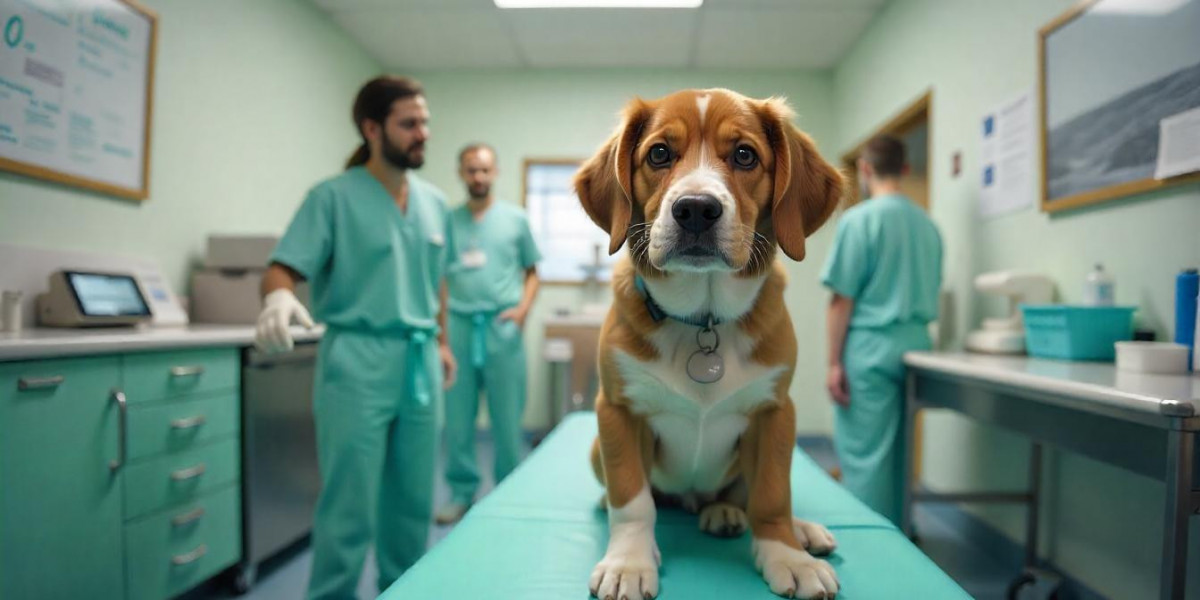When your pet faces a sudden health crisis, knowing what to expect during an emergency vet visit can ease your stress and help you act quickly. In Surrey and Langley, trusted veterinary clinics like Avon Animal Hospital provide expert care for pets in distress. This guide walks you through the process, from recognizing an emergency to aftercare, ensuring you’re prepared for any situation. Written by a veterinary care specialist with over a decade of experience, this article offers reliable, actionable advice to support pet owners.
Recognizing a Pet Emergency
A pet emergency requires immediate attention to prevent serious harm or save a life. Common signs include:
- Difficulty breathing: Gasping, choking, or rapid breathing.
- Severe bleeding: Uncontrolled bleeding from wounds or orifices.
- Seizures: Uncontrolled shaking or convulsions.
- Inability to walk: Sudden paralysis or dragging limbs.
- Vomiting or diarrhea: Persistent or bloody episodes.
- Suspected poisoning: Ingesting toxic substances like chocolate, antifreeze, or plants.
- Trauma: Hit by a car, falls, or fights with other animals.
If you notice these symptoms, call your vet immediately. Time is critical, and quick action can make a difference. Keep your vet’s number and the nearest emergency clinic’s contact handy.
Preparing for the Visit
Before heading to the clinic, take these steps to ensure a smooth process:
- Call Ahead: Contact the emergency vet to describe your pet’s symptoms. This allows the team to prepare equipment and staff. For example, if your dog swallowed a foreign object, they may ready X-ray machines.
- Stay Calm: Pets sense your anxiety, which can worsen their stress. Speak softly and move gently.
- Gather Information: Note when symptoms started, any recent accidents, or items your pet may have eaten. This helps the vet diagnose faster.
- Secure Your Pet: Use a carrier for cats or small pets and a leash for dogs to ensure safety during transport.
In Surrey and Langley, clinics are equipped to handle emergencies 24/7, so you can get help any time.
Arriving at the Emergency Vet Clinic
When you arrive, the clinic staff will act quickly to assess your pet’s condition. Here’s what happens:
- Triage Process: A veterinary technician will evaluate your pet’s vital signs, like heart rate and breathing. Critical cases are prioritized, so you may wait if your pet is stable.
- Initial Assessment: The vet performs a physical exam and may ask about your pet’s medical history, symptoms, and recent behavior.
- Paperwork: You’ll fill out forms with your contact details and consent for treatment. Some clinics, like those in Surrey, offer digital forms to save time.
The clinic’s goal is to stabilize your pet quickly. Emergency Veterinary Services in Surrey & Langley are designed to provide rapid, expert care, ensuring your pet gets the best chance at recovery.
Diagnostic Tests and Procedures
To pinpoint the issue, the vet may recommend diagnostic tests, such as:
- Blood Tests: Check for infections, organ function, or anemia.
- X-rays or Ultrasounds: Detect broken bones, internal injuries, or foreign objects.
- Urinalysis: Identify kidney or bladder problems.
- ECG: Monitor heart activity for cardiac issues.
Based on the results, the vet may suggest treatments like:
- Medications: Pain relief, antibiotics, or anti-seizure drugs.
- Surgery: For internal injuries, blockages, or fractures.
- Fluid Therapy: To treat dehydration or shock.
- Oxygen Therapy: For breathing difficulties.
The vet will explain each step and get your approval before proceeding. Costs vary depending on the treatment, so ask for an estimate if needed.
During Your Pet’s Treatment
While your pet receives care, you may be asked to wait in a designated area. Emergency clinics in Surrey and Langley prioritize a calm environment for pets, so visitor access to treatment areas is limited. Here’s what to expect:
- Updates from Staff: The vet or technician will update you on your pet’s progress. For complex cases, they may call you with updates if you leave the clinic.
- Waiting Times: Treatment can take minutes to hours, depending on the severity. Bring a book or phone to stay occupied.
- Emotional Support: It’s normal to feel worried. Many clinics offer water, tissues, or a quiet space for owners.
Your patience helps the team focus on your pet’s care. Trust that the staff is working hard to stabilize and treat your furry friend.
Costs and Payment Options
Emergency vet visits can be costly due to specialized equipment and round-the-clock staffing. Common expenses include:
- Consultation Fees: $100–$200 for the initial exam.
- Diagnostics: $50–$500, depending on tests like X-rays or bloodwork.
- Treatments: $200–$2,000 or more for surgeries or hospitalization.
Many clinics, including those in Surrey and Langley, accept credit cards, debit, and third-party financing like CareCredit. Some offer payment plans—ask the staff about options. Pet insurance can also offset costs, so check your policy before the visit.
Aftercare and Follow-Up
Once your pet is stable, the vet will provide discharge instructions. These may include:
- Medications: How to give pills or apply ointments.
- Activity Restrictions: Limiting jumping or running for healing.
- Diet Changes: Special food for recovery.
- Follow-Up Visits: To monitor progress or remove stitches.
Follow these instructions carefully to prevent complications. If your pet’s condition worsens, contact the clinic immediately. The vet may refer you to your regular veterinarian for ongoing care or schedule a specialist visit.
Tips for a Stress-Free Experience
To make emergency visits smoother, try these tips:
- Know Your Clinic: Research emergency vet locations in Surrey and Langley. Avon Animal Hospital, for example, offers 24/7 care with advanced technology.
- Keep Records: Store your pet’s medical history in an accessible place.
- Practice Prevention: Regular checkups and vaccinations can reduce emergencies.
- Stay Informed: Learn basic pet first aid, like how to stop bleeding or perform CPR.
Being prepared saves time and reduces stress for you and your pet.
Why Choose Emergency Vet Care in Surrey & Langley?
Surrey and Langley are home to top-tier veterinary clinics with skilled teams and modern facilities. These clinics offer:
- Experienced Staff: Board-certified vets and trained technicians.
- Advanced Tools: Digital X-rays, ultrasounds, and in-house labs for fast results.
- Compassionate Care: A focus on comforting both pets and owners.
Whether it’s a late-night accident or a sudden illness, you can trust local clinics to deliver high-quality care.
Conclusion
An emergency vet visit can feel overwhelming, but understanding the process helps you stay calm and focused. From spotting symptoms to following aftercare, each step is designed to give your pet the best chance at recovery. In Surrey and Langley, clinics like Avon Animal Hospital are ready to provide expert, compassionate care when your pet needs it most. Keep their number handy, stay prepared, and trust that your pet is in good hands.
FAQs About Emergency Vet Visits in Surrey & Langley
Q: How do I know if my pet needs an emergency vet?
A: Look for signs like trouble breathing, severe bleeding, seizures, or inability to walk. If you’re unsure, call your vet for advice.
Q: Can I visit my pet during treatment?
A: Most clinics limit access to treatment areas to keep the environment calm, but staff will provide regular updates.
Q: How much does an emergency vet visit cost?
A: Costs range from $100 for an exam to $2,000 or more for surgery. Ask about payment plans or insurance options.
Q: Are emergency vets open 24/7?
A: Yes, many clinics in Surrey and Langley, like Avon Animal Hospital, offer round-the-clock care.
Q: What should I bring to an emergency vet visit?
A: Bring your pet’s medical records, a list of symptoms, and any medications they’re taking. A carrier or leash is also essential.
For more information or to schedule an appointment, contact Avon Animal Hospital.










